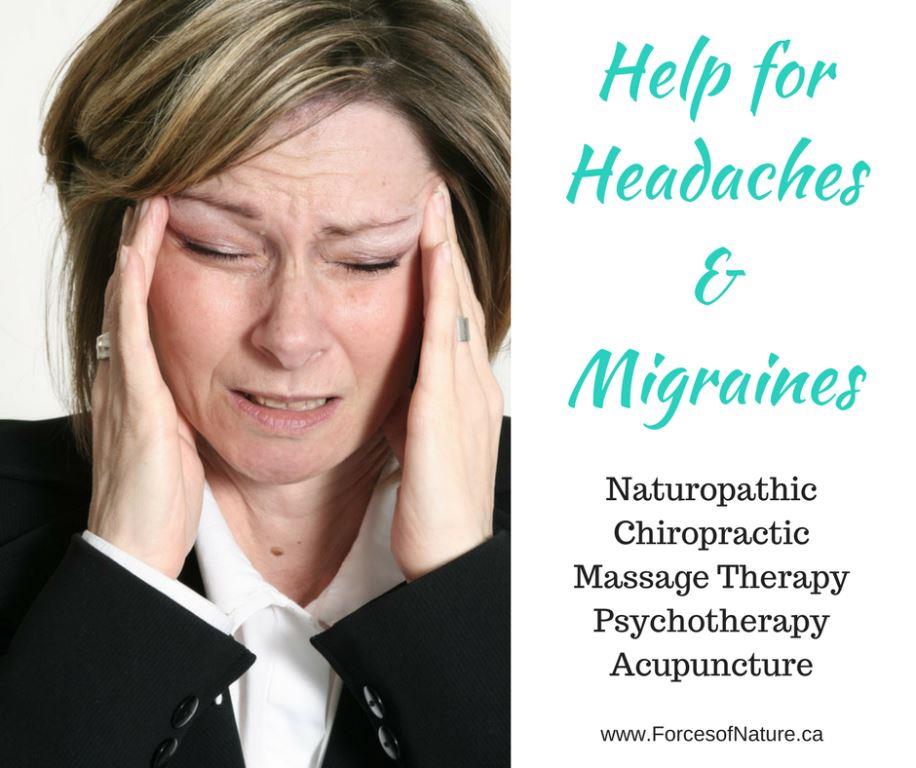
Why Do You Get Migraines?
What Causes Migraines?
There are a number of potential causes of migraines:
- Excessive histamine
- Excessive inflammation
- Food allergies, intolerances or sensitivities
- Neurotransmitter imbalance
- Hormone imbalance
How Do You Know if a Headache is a Migraine?
Migraine symptoms include: nausea and/or vomiting, pain behind one eye, pain in your temples, visual changes like seeing spots or auras, sensitivity to light and/or sound, and/or temporary vision loss [see your MD ASAP if you have this symptom].
How Long Does a Migraine Last?
A typical migraine can last from 4 to 72 hours.
The Natural Treatment Approach to Migraines
- Reduce histamine – correct diet, increase vitamin C
- Support the adrenal glands – vitamin B5, B6, C, magnesium, zinc, ashwaganda, panax ginseng, rhodiola, schisandra, gotu kola.
- Test for and remove IgG and IgA food sensitivities.
- Balance neurotransmitters by providing the appropriate precursor vitamins, minerals and amino acids (B6, magnesium, tryptophan, tyrosine).
- Balance hormones – correct diet, provide indole-3-carbinol, 5MTHF, P5P, magnesium, B12, and glucarate for liver detoxification.
Histamine
Excessive blood histamine levels may be a factor in migraines. Histamine is a substance released by cells known as mast cells and is also present in certain foods. Histamine from food sources are normally broken down in the gut by an enzyme known as DAO or Diamine Oxidase. Some people are genetically programmed to make inadequate levels of DAO. Stabilizing mast cells to reduce histamine release, lowering intake of high histamine foods and supplementing DAO enzyme may help histamine related migraines.
Dietary histamine: Avoid citrus fruit, stored, fermented, canned, aged and/or pickled foods.
Antihistamine: Vitamin C acts as a natural antihistamine and supports the adrenal glands and healthy, more stable blood veins and arteries.
Blood tests: tryptase and diamine oxidase (DAO).
Adrenal glands
The adrenal glands are your body’s internal corticosteroid source. As such, they play a role in moderating inflammation and migraine prevention. Depletion of critical nutrients for adrenal function due to malabsorption, excessive excretion due to stress, or poor diet may lead to altered HPA axis function or corticosteroid production, contributing to migraines. Adrenal supportive nutrients include vitamin B5, B6, C, magnesium, and zinc. Herbs demonstrated to support the body’s adaptation to stress include Panax ginseng, eleuthrococcus, ashwaganda and licorice root.
Blood tests that may elucidate issues with the adrenals include DHEAs, testosterone, a.m. and p.m. cortisol levels.
Test for and Remove IgG and IgA Mediated Food Sensitivities
The exclusion of IgG mediated food sensitivities has been shown to significantly improve symptoms for sufferers of migraines and IBS. An association between celiac disease (IgA antibodies to gluten) and migraine in adults has also established.
Blood test: IgG and IgA food sensitivity testing
Neurotransmitters and Migraines
Research has also suggested a connection between neurotransmitter levels such as serotonin and migraine. SSRI type medications are often tried as a solution. Many of the patients that I see don’t like these medications due to their side effects of weight gain, low libido and feeling emotionally flat. As an alternative to this approach, I recommend vitamin B6 and magnesium as co-factors for the production of serotonin. Magnesium may also help relax muscle tension and calm the nervous system.
Blood test: Spectracell Micronutrient Analysis
Migraines and Hormones
Hormone imbalance can influence susceptibility to migraines. Estrogen dominance in women often precipitates premenstrual migraines. Supporting liver detoxification of estrogen, including environmental estrogens, helps relieve menstrual migraines.
Blood tests: DHEAs, testosterone, estradiol, LH, FSH, progesterone, prolactin
What other treatments help migraines?
Other effective natural medicine therapies for migraines include: chiropractic treatment, massage therapy, acupuncture and craniosacral therapy.
If you need help with migraines, click here to book an appointment.
Migraines: Why are you still suffering? http://t.co/aEIgEHhl5I
— Dr. Pamela Frank, ND (@PamelaTorontoND) September 8, 2015
References:
- Johnston CS, Martin LJ, Cai X. Antihistamine effect of supplemental ascorbic acid and neutrophil chemotaxis. J Am Coll Nutr. 1992 Apr;11(2):172-6.
- Alstadhaug KB. Histamine in migraine and brain. Headache. 2014 Feb;54(2):246-59.
- Aydinlar EI, Dikmen PY, Tiftikci A, Saruc M, Aksu M, Gunsoy HG, Tozun N. IgG-based elimination diet in migraine plus irritable bowel syndrome. Headache. 2013 Mar;53(3):514-25.
- Cristofori F, Fontana C, Magistà A, Capriati T, Indrio F, Castellaneta S, Cavallo L, Francavilla R. Increased prevalence of celiac disease among pediatric patients with irritable bowel syndrome: a 6-year prospective cohort study. JAMA Pediatr. 2014 Jun;168(6):555-60.
- Gabrielli M, Cremonini F, Fiore G, Addolorato G, Padalino C, Candelli M, De Leo ME, Santarelli L, Giacovazzo M, Gasbarrini A, Pola P, Gasbarrini A. Association between migraine and Celiac disease: results from a preliminary case-control and therapeutic study. Am J Gastroenterol. 2003 Mar;98(3):625-9.
- Woldeamanuel Y, Rapoport A, Cowan R. The place of corticosteroids in migraine attack management: A 65-year systematic review with pooled analysis and critical appraisal. Cephalalgia. 2015 Jan 9.
- McMullen MK, Whitehouse JM, Towell A. Bitters: Time for a New Paradigm. Evid Based Complement Alternat Med. 2015;2015:670504.
- Dakshinamurti S, Dakshinamurti K Antihypertensive and neuroprotective actions of pyridoxine and its derivatives. Can J Physiol Pharmacol. 2015 May 11:1-8.
- Mauskop A, Varughese J. Why all migraine patients should be treated with magnesium. J Neural Transm. 2012 May;119(5):575-9.
- Patacchioli FR, Monnazzi P, Simeoni S, De Filippis S, Salvatori E, Coloprisco G, Martelletti P. Salivary cortisol, dehydroepiandrosterone-sulphate (DHEA-S) and testosterone in women with chronic migraine. J Headache Pain. 2006 Apr;7(2):90-4. Epub 2006 Mar 31.